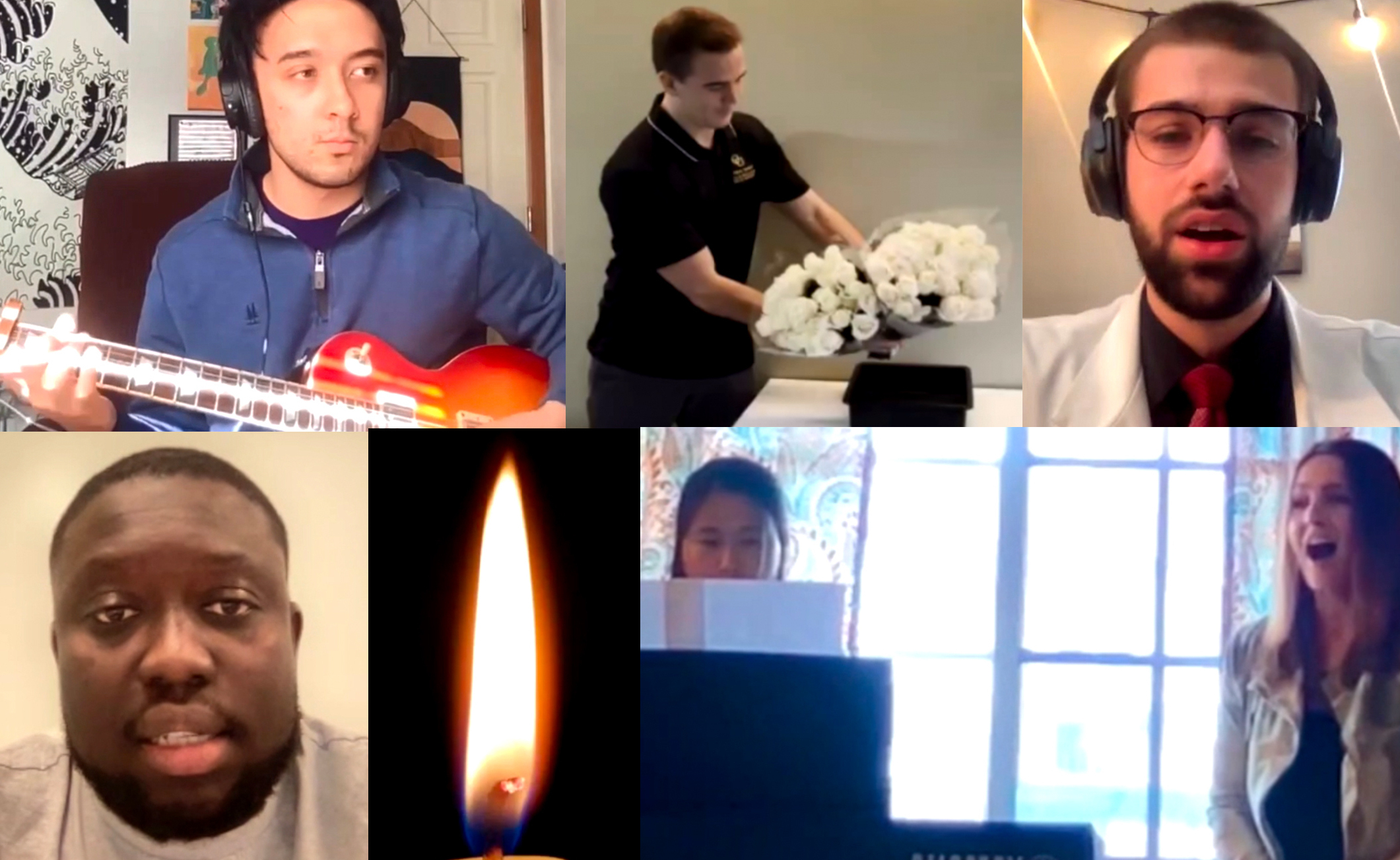
Oakland University William Beaumont School of Medicine and Oakland University School of Health Sciences Physical Therapy Program collaborated on an Anatomy Memorial held Tuesday in honor of individuals who donated their bodies to medicine.
More than 100 people attended the virtual event as faculty and students from both schools paid their respects to the donors whose bodies, since the beginning of the school year, have played an essential role in helping understand anatomy in a way that officials said can’t be taught in a book or lecture.
Several students and faculty paid their respects to the donors through art and music, while others spoke in reflection. Among the speakers was OUWB Stephan Sharf Dean Duane Mezwa, M.D.
“Through the gift of these donors, we have learned things that textbooks could never teach,” Mezwa said. “And through this ceremony, we hope to celebrate the life and humanity of each of these people. This service reflects our gratitude and respect for all the donors.”
A planning committee consisting of three M1 students — Cullen Woodley, Jessica Cummings, and Skylar Sundquist — organized the event.
Advisers to the committee were Deborah Doherty, P.T., Ph.D., associate professor, Physical Therapy Program, and Jickssa Gemechu, Ph.D., assistant professor, Department of Foundational Medical Studies.
“The whole point is to recognize and appreciate this selfless gift for science and medical students who are benefiting a lot from it,” Gemechu said.
Gemechu said having real human bodies to study when learning anatomy is very important. It gives students both a hands-on learning experience and the ability to see the diverse variations of the human body.
“(Donors) give (students) the whole image of what they're studying,” Gemechu said. “You can't imagine anatomy without dissection because it's going to be like memorizing things, but here now, it gives them the actual imagination and understanding.”
Woodley and Cummings both agreed that having real human bodies to study is crucial, saying that seeing pictures in a textbook doesn't do the experience justice.
“Personally, I'm a very hands-on learner,” Woodley said. “The textbooks and everything, they can teach you the basics and how it should be, but working with the real human body shows you how it actually is and that you do get that appreciation for working with actual people and that is who you are going to work with.”
“When you learn from textbooks, everything is the same and everything is perfect, like what you'd expect to see for these anatomical structures,” Cummings said. “But when you actually work with real human bodies, there's a lot of variation and difference and someday when we're working in clinical practice, that's how it's going to be. Not everyone's going to be the same.”
| More from OUWB |
Volunteer OUWB medical students teach anatomy at local summer camp How OUWB’s anatomy course got its groove back — despite COVID-19 |
Student performers and speakers from the OU Physical Therapy Program included Arianna Hohner, Jake Peplinski, Ryan Melcher, Shelby Ferrell, and Jo Marinello.
Chance Stevenson, M1, played a medley of songs that “taught him about life” on electric guitar. Songs he played included Radiohead’s “Airbag,” Nico’s “These Days,” Fleetwood Mac’s “Landslide,” Jeff Buckley’s version of Leonard Cohen’s “Hallelujah,” Phoebe Bridgers’ “Kyoto,” and Vampire Weekend’s “Harmony Hall.”
Salim Abdul-Razak, also a first-year OUWB student, read a poem called “Even Death Couldn’t Stop Them.” He said it was inspired by the “enormous” sacrifice of the donors.
David Howell, another first-year OUWB student, performed the song “The Parting Glass,” an Irish tune that celebrates life and the time we spend with the people we love.
“I acknowledge that every day I spent with you was a joy that lived past your time here on Earth,” Howell said in his message to the donors before breaking into song. “I want to thank you and your family on behalf of the Class of 2025 for the special opportunity to learn from you and become the best physicians and physical therapists we can be.”
When Ngan Nguyen, Ph.D, assistant professor, Department of Foundational Medical Studies, was a graduate student she was grateful for the donors and their families and continues to express gratitude now as a faculty member.
She read a short poem called “Teachers,” that she said “depicts the impact the donors had on my academic career and their influence on my goal of becoming a great medical educator.”
To request an interview, visit the OUWB Communications & Marketing webpage.
NOTICE: Except where otherwise noted, all articles are published under a Creative Commons Attribution 3.0 license. You are free to copy, distribute, adapt, transmit, or make commercial use of this work as long as you attribute Oakland University William Beaumont School of Medicine as the original creator and include a link to this article.

